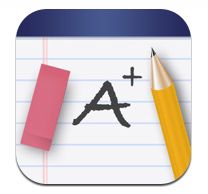 It’s amazing how the life of a student has changed. In just one generation , I see a world that has profoundly changed the attitudes and behaviours of kids. The speed and accessibility of information, the plethora of opinion blogs, the real-time discussion boards on any topic in the world would enable this next generation smarter to develop a smart, creative group of youngsters, primed to make incredible changes for the world. Or so I thought….
It’s amazing how the life of a student has changed. In just one generation , I see a world that has profoundly changed the attitudes and behaviours of kids. The speed and accessibility of information, the plethora of opinion blogs, the real-time discussion boards on any topic in the world would enable this next generation smarter to develop a smart, creative group of youngsters, primed to make incredible changes for the world. Or so I thought….
The terms “information superhighway” and “knowledge economy” entered the lexicon to describe this awesome era of information. Most assumed that teens would use their know-how of technology to form the vanguard of this new, hyper-informed era. Technology would make young adults more astute, diversify their tastes, and improve their minds. But, have technological advancements had the opposite effect?
Back in the day…
When I was a student (in the 80’s), my parents made sure we always had the latest editions of the Encyclopedia Britannica and the Webster’s dictionary. Saturday was always the day we went to the library. It didn’t take long to learn about the Dewey Decimal System, although researching was a bit tough. Once I exhausted the encyclopaedia for any reference material, our local library was the only other place to go. This was a typical scenario I used to put together a research paper:
- Once I found the book sources, I trudged home (no, in those days we had shoes) with a mountain of books that tested every seam on my reliable knapsack.
- I’d create an outline of how I wanted my essay structured.
- Then I started the looking for proof points from my library sources. This would take the most time. This included some “illegal” highlighting, bookmarking pages and creating a bibliography at the same time.
- The writing process was onerous. I put pencil to paper in rough draft and proceeded to piece together the story, always cautioned all my sources were credited.
- Once completed and organized, the final piece involved typing the the paper, always ensuring “corrector tape” or White Out was on hand.
- Many times the paper needed editing for spelling and grammar. My Mom helped with both of these and inevitably, the whole paper would need to be retyped to account for these corrections.
Fast forward to 2013…
There is a great divide between the disciplines of a score ago and that which exists today. I don’t think I’ve seen my kids head to the library during the school year except for an odd occasion. The library, in fact, is a dying institution. Why go there when Wikipedia is abundant with information? Or for that matter, Google? Bookmarking sites has replaced the drudgery of reading, highlighting and “post-it” notes.
The other day my 10 year-old was lacking 4 or 5 proof points for his homework. He asked me how he was going to find it. Silly me, I said, “Go to Google”. The next thing I know, I overheard my son using the voice feature on search to ask his questions verbatim to what was written in the book. Low and behold, within seconds, the answers appeared…. and his homework was complete.
My daughter refuses to reference the dictionary for definitions. Who wants to try rifling through that huge bible-of-a-book to find the meaning when there are upteen versions online that can get her to the information in a matter of clicks?
Also writing speeches now takes half the time. By introducing Google Drive, kids now have one source to save all their resource links and copy and paste information into the body of their speeches.
This copy and paste generation gives rise to more pervasive cheating. The Canadian Council of Learning confirms, “over the past decade, researchers and teachers have reported a dramatic climb in the occurrence of academic dishonesty among students in high schools and post-secondary institutions—one seemingly sparked by the rise of the Internet.
Where speed is more important than cognitive learning
There are many things about today’s education system that trouble me. First, there appears to be little emphasis on grammar, or spelling or language. I don’t know how many times I’ve witnessed my kids’ lessons not penalized because of incorrect grammar or spelling.
What’s even more troubling is that cursive is no longer taught in schools. Handwriting has been known to “reinforce cognitive and motor skills, and is linked to reading comprehension, brain development and memory.” The demise of cursive instruction has developed from the notion that it is outdated and should be replaced with increased emphasis on keyboard skills.
I couldn’t imagine printing once I learned how to write. Remember those endless loops we practiced in grade school—to teach us the art of writing? What happens with self-expression that comes with the written signature? Is that lost too?
And who picks up a book anymore? This multi-tasked generation may find it easier to stream an audio book on their iphone or find the “Coles’ Notes” version on the web.
With all this ready information, it’s a wonder why we, as parents, don’t feel compelled to behave the same way.
Easier, perhaps, but …
I think that perhaps progress is paving the way for yet new challenges for youth. Learning and interacting with the world is radically different than when I was a kid. This generation seemingly has not taken advantage of its resources to create leaps in innovation and societal progress. But they have time and I think this new world will foster a new way of thinking that will allow this apparently “entitled generation” to bring about a whole new set of changes to traditional cultures, archaic processes and the way people communicate with each other. This generation is not lost…at least not on me!




Thanks for your comments. 3 years after I wrote this article, things have become much more automated. STEM is prioritized as a path in Ontario schools; textbooks have given way to ipads; no longer do teachers, at least in the Ontario school system, are expected to teach the basics of math – rather, the curriculum supports child discovery to improve their own cognitive abilities.
All this when AI is destined to kill traditional jobs. I suspect this next decade will prove challenging to this next generation of leaders.
In fact, an integrating technology in education everyday helps kids stay engaged. Moreover, it is considered as a main tool for making the process of learning easy and faster. It’s an instrumental for learning new things!
Thanks Tim! I know my kids have an easier time when you and I were in school. If there are more seamless ways of doing things, but continue to challenge our kids’s abilities, then that’s the important things. Information should not be handed to anyone on a silver platter. There has to be a way of validating information, especially in the face of user-generated information. Time will tell how the next generation fares from this new way of learning.
Fantastic post Hessie.
You are bang on and wow, did I ever relate to what you are saying, also being a product of the 80s with 10, 8 and 8 year old children. Although, I never did that you thing you talked about…what did you call it? Oh, yes, a library.
I’ve had a lot of fun teaching my children the ways of yesterday, but letting them embrace the new age of research, attributing and referencing. I take the time to point out other points of view and arguments so that they learn how to balance information and make objective choices on their own and most importantly, be able to argue their points intelligently. This, all in hopes that they never get lazy with what they are doing and appreciate how good they have it.